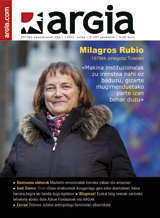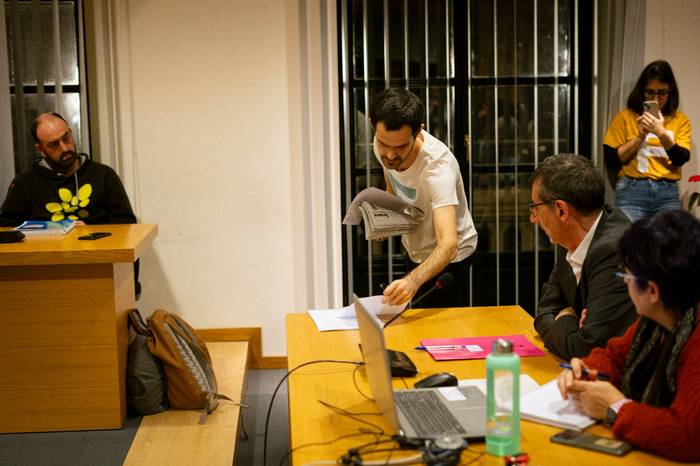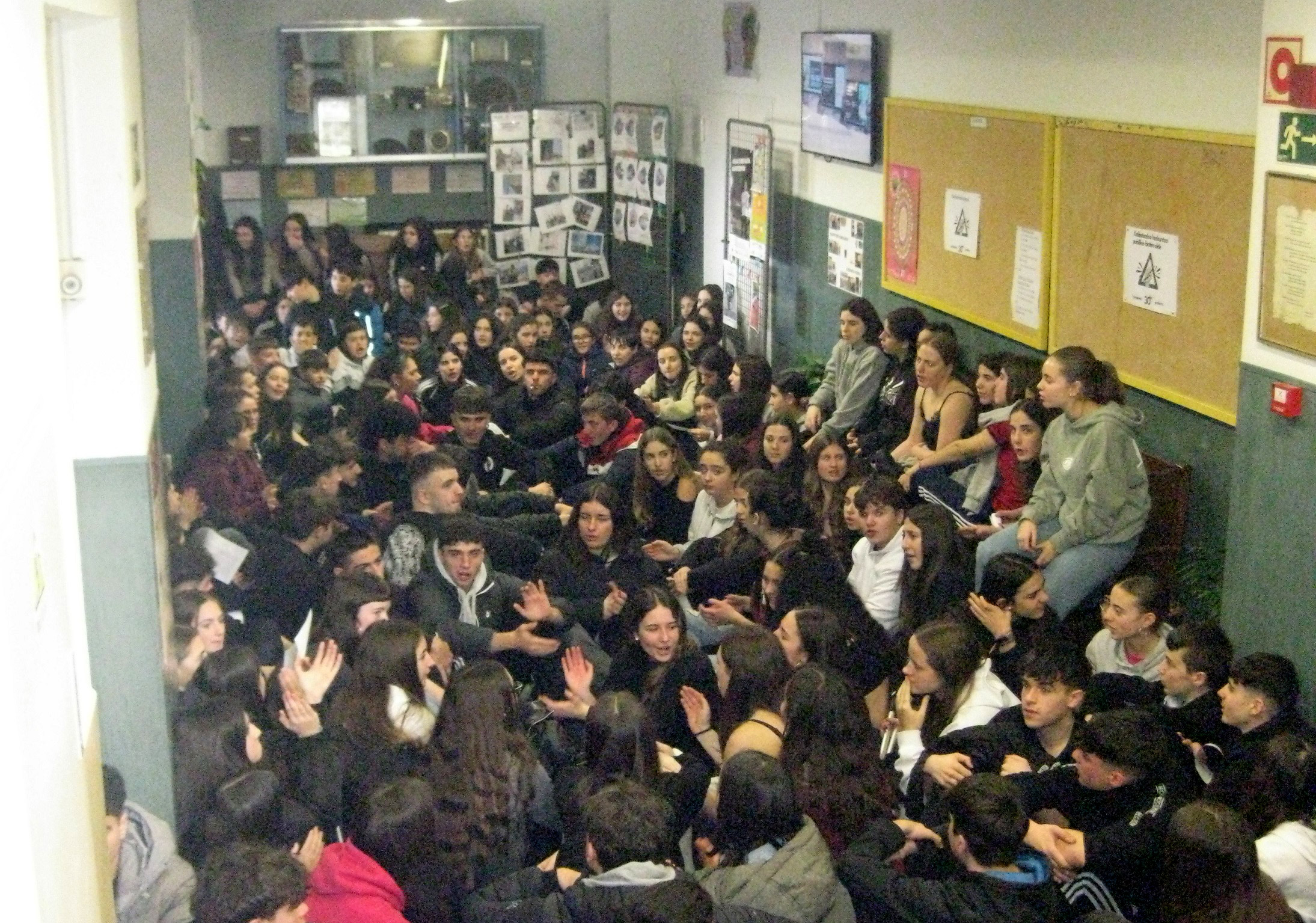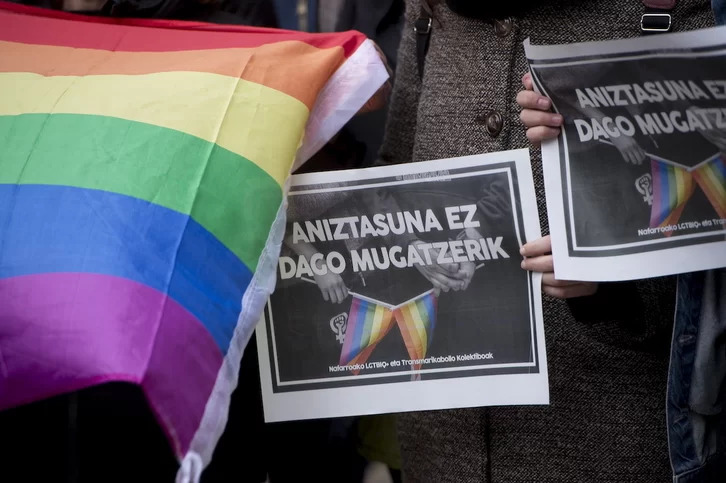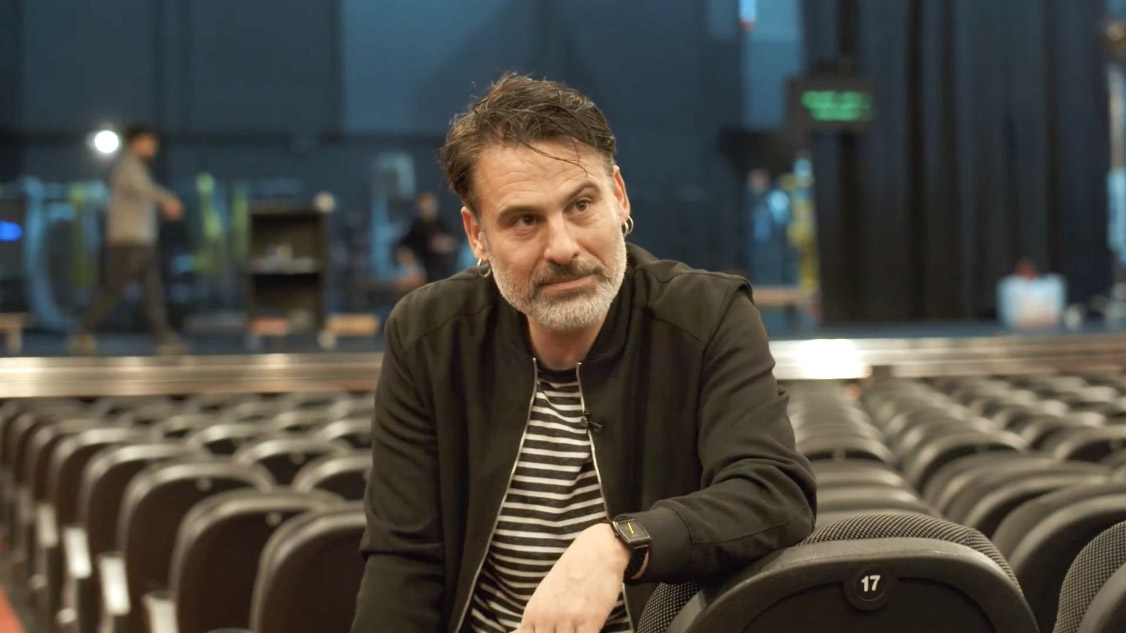The heart says ... “Are you going to the Basque Country?”
- A card (des)herrira Garazi Goia Elkar, 2013
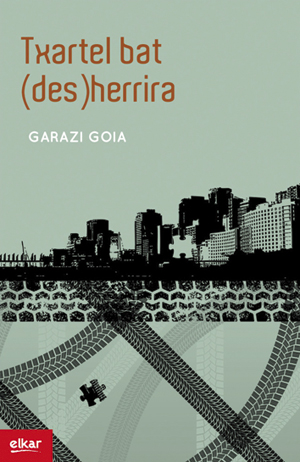
With the book (des)herrira Garazi Goia has taken a look at the children who went from Euskal Herria to England after the bombing of Gernika and took the opportunity to talk about exile and the people. But when we look at this issue, belonging goes beyond feeling, proposing: What happens when the link between the people and oneself is broken? What do you do with painful memories that question identity? Who are we when the past radically conditions our present and future? Goia shows us protagonists who seem to have doubts about the feeling of belonging and who are uprooted and uprooted. Two routes are crossed in London, both from Euskal Herria and with the idea of returning the two in a conflictive way. The search for and flight from freedom, the pain of abandonment and the weight of loneliness mingle with Ibai and Peru. Can you get back to Euskal Herria and stay well?
These two lives are crossed throughout the book's chapters, the narrative interspersed with interviews, which the author will also spin with letters, dreams and poems. The Identity of Milan Kundera or The Foreigner of Albert Camus are some of the themes that come to be highlighted with direct quotes, also the end of Sylvia Plath's life will have its place in the plans for the future or will remind us of the title of the autobiography of Sheikh Winterson: “Why be happy when you can be normal?”
The two protagonists share the image of the paper aircraft, which is repeated over and over again in the book. One appears bloody in his dreams and the other writes notes so that whoever wishes to express them sends them to his recipient. Next to this are the notebooks, because they both write their memoirs in notebooks. One says: “It’s a therapy. To break one of the last dilemmas that I have left in my life,” while the other makes “lists of things that cannot be asked.”
As it is a work with interesting themes and structures, I do not need more editing work, because there should not be linguistic errors (although we know that in today’s literary works we find ourselves more and more), and because it could help to make the prose more elaborate by completing and completing this literary text.
Vagina Shadow(iko)
Group: The Mud Flowers.
The actors: Araitz Katarain, Janire Arrizabalaga and Izaro Bilbao.
Directed by: by Iraitz Lizarraga.
When: February 2nd.
In which: In the Usurbil Fire Room.









